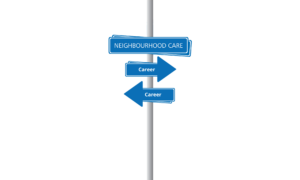I often get the question whether Buurtzorg, originating from the Netherlands, is a typical Northern European phenomenon, since the foundations seem to be close to its culture. This is for me as a Dutch guy not easy to answer since I’m brought up in this North-European culture and it is always hard to observe something while you are part of it. The interesting thing is that the moment you migrate to another country and culture, you become more aware of your own culture. I’m sure, my fellow migrants have experienced the same thing. I live now for over 18 years in Australia, and I think to believe that I’m getting a little bit better to reflect on cultural matters, on both sides. So here are my two cents about the North-European cultural influence on the Buurtzorg-way of working.
The North-European societies have a powerful belief in the ideal of the flexible, clever, out-of-the-box thinking individual who can find a way through difficult circumstances. Relationships and quality of life come first, not material possessions or cut-throat competition. They believe in egalitarian, flat structures, where everyone has a voice, and embrace both failure and common sense.
North-European countries are known for their matter-of-fact desire to not waste words and say how it is. Being able to give and receive feedback in a respectful and constructive way is key. Managers are also known for their tendency to be non-directive in their instructions and to expect workers to problem-solve for themselves to achieve their goals. While they may be autonomous and individualistic, the value of teamwork and consensus- based decision-making is considered important. Overall, North-European cultures are relaxed, egalitarian, and relationship-oriented.
While I was writing this, I thought fair point that North-European culture has an influence on the Buurtzorg model: relationships first, flat structures, common sense, giving feedback, non- directive management, autonomy, teamwork and consensus-based decision-making. All Buurtzorg stuff. However, what struck me was that Australian culture is quite similar in many ways. The Australian culture values its individualism, saying how it is, is easy going (relaxed), self-mockery, egalitarian, have common sense, does problem solve (the pinnacle is the bush- repair), and so on. Even scientifically, the Northern European and the Australian cultures are quite alike, with the major difference in masculinity (high in Australia) and long-term orientation (low in Australia).
Despite that culturally seen we are quite similar, the workplaces in Australia tend to be more traditional and bureaucratic. I still don’t know why this is. There is a common and strong believe that if the process is good, the outcome will be good too. This, despite the ever faster changing world, where adaptation and responsiveness are key to be successful and safe. We have all these well- educated and well-trained, thinking, active, passionate, creative, pro-active, taking initiative individuals, and we expect them to follow a process and procedure and do as they are told. All this potential, and we’re not using it. It just doesn’t make sense. The good news is, that you can see the change happening now. It is just a matter of time that flat or flatter organisations will have a more dominant position here, with high-level of collaboration and where decisions are made where the action is.
With the Australian culture in mind, I am not surprised that the Buurtzorg way of working at Neighbourhood Care is really catching on here. It is just a bit new and unusual, but it fits very well. This appears to be a common theme when Buurtzorg starts in another country. The general reaction is that it might work in the Netherlands, but not here. Guess what: every time it seems to work quite well. Countries with similar cultures embrace it sometimes quicker, but on the longer term this way of working is winning. In this day and age, nobody wants to work as minions anymore. People want to make decisions, take responsibility, want to part of a great team, want to make a difference, be the master of their own destiny, want to be engaged and be part of something special. It’s only human..





